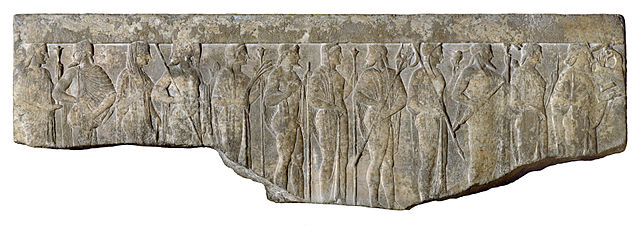In Greek and Roman mythology, several goddesses are distinguished by their perpetual virginity. These goddesses included the Greek deities Hestia, Athena, and Artemis, along with their Roman equivalents, Vesta, Minerva, and Diana. In some instances, the inviolability of these goddesses was simply a detail of their mythology, while in other cases virginity was also associated with their worship and religious rites.
Athena Parthenos, one of three great virgin goddesses of Greek mythology. Statue in front of the Austrian Parliament Building in Vienna.
Diana, Roman copy of a Greek original. Galleria dei Candelabri, Vatican Museums. Photo by Jean-Pol Grandmont.
In ancient Greek religion and mythology, Hestia is the virgin goddess of the hearth and the home. In myth, she is the firstborn child of the Titans Cronus and Rhea, and one of the Twelve Olympians.
The Giustiniani Hestia
Hestia holding a branch of a chaste-tree, red-figure kylix, attributed to Oltos, Tarquinia National Museum.
Hestia (?) on the northern frieze of the Siphnian Treasury, 6th century BC, Delphi Archaeological Museum, Greece.
Fragment of a Hellenistic relief (1st century BC – 1st century AD) depicting the twelve Olympians carrying their attributes in procession; Hestia with scepter to the left, from the Walters Art Museum.






